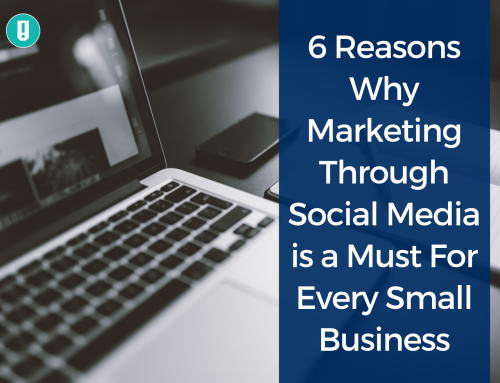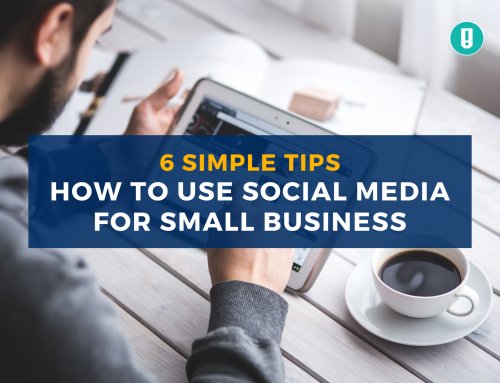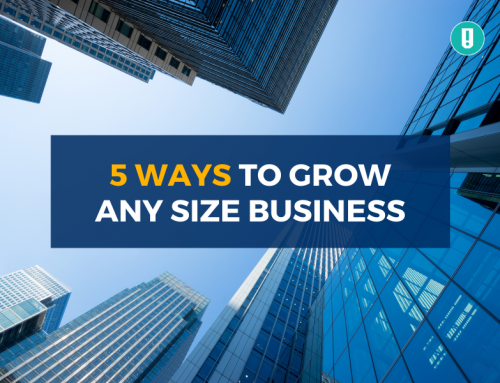For small businesses in the modern era, it’s no longer a question of whether they need a website. A web presence is required for even the smallest brick-and-mortar businesses. What you should consider instead is how robust a website you need.
Retail businesses in particular have many possible website styles and options to choose from. What you decide on will depend on your goals: Do you want a site that encourages visitors to your physical location? Or do you want to start selling your wares online as well?
Luckily, it’s easier than ever to start, maintain, and expand your business’s website nowadays. Let’s review what every website needs, as well as what you might need for your specific business.
What every retail business website needs
A brick-and-mortar business will almost always have some of the following traits: four walls, a point of sale system, employees. Similarly, a website for your business has its own must-haves:
- A domain name: A clean, clear, concise domain name that is as close to the name of your business as possible is required. You can use sites such as GoDaddy to obtain a unique domain name, which will help you surface more easily on Google and other search engines.
- A web host: Your physical business needs land to sit on, and your website needs a web host. Most hosts also provide business email addresses—another handy tool for instilling confidence in your customers.
- Mobile responsiveness: It’s no longer optional for your website not to work perfectly on a mobile device. Most global web traffic is officially mobile traffic, and we can expect mobile traffic to continue rising in the years to come.
- Basic information: What is your business address? If you have a physical location, what are your hours? A visitor should be able to come to your site and learn everything they need to know about you immediately.
Any business that wants to compete will need, at minimum, a site with the above items. Now it becomes a matter of how much more you want to add.
For brick-and-mortar retail businesses
If you’re not interested in any sort of e-commerce arm to your business, and simply want to create a website as part of your online marketing campaign, that’s a fine move. A website, along with interlinked social media channels, goes a long way towards making your business more trusted and recognized.
Because you won’t be accepting payments or dealing with sensitive customer information, you can use any number of basic website building platforms or all-in-one online marketing platforms to help build a website that displays business information, delivers your backstory, and links to your external blog.
You can use this page to post updates on new merchandise, encourage visitors to sign up for your newsletter, or alert people to upcoming discounts or sales as well.
For e-commerce businesses
If you want to dip your toes into the world of online retail, you can create a website whether or not you have a background in coding. Your options are plentiful regardless of how much say you want to have in the look and feel of your site, as well as whether you’re willing to let a third-party platform handle the logistics of e-commerce.
Build your site yourself
If you do have website building or other coding experience — or you have someone on your team that does — you can create a site from scratch using a tool like SnapRetail.
If you want to design your own page, don’t forget to include call-to-action buttons, keep things simple and clean, and work to prevent your site from loading too slowly, which can affect ranking.
Use a site builder
There is no shame in using a template from a third-party site builder to create your website. It’s a very common tactic that helps business owners with no web experience create an easy-to-use website — without breaking the bank hiring a coding expert.
For both of the above options, you’ll almost certainly need to enlist a merchant account to help you safely take down the financial information of your customers and keep their data safe. Companies like PayPal and Chase integrate easily with most websites and will handle your transactions for a small fee.
Use an e-commerce platform
Maybe you’re not interested in creating your own site, and would rather live within the ecosystem of a larger e-commerce world — one which, while more anonymous, can also help drive traffic to your site and handle all your payment logistics.
If this is the case, look no further than a platform like Shopify, Etsy, or Amazon Marketplace. On these platforms, you have a unique page that you can customize, but for the most part you are a merchant selling within a larger online warehouse.
This is the easiest option of the bunch, as most of the backend stuff is taken care of for you. Your biggest responsibility is to sell products and fulfill orders.
Keep in mind that even if you use this option, you may still want a separate website that links to your Shopify or other store account, to maximize your web presence.
In conclusion
As you can see, a website for your retail business doesn’t have to be overly complex for it to make a big impact. You can use a variety of tools available to small business owners on the web today to create a site that meets your needs. Then, as your needs change—you want to start selling online, or create a more dynamic page—you can simply scale up. It all starts with a basic website, however, and there’s no better time to get started than now.
Christine Soeun Choi is an SEO associate at Fit Small Business specializing in digital marketing. Currently based in NYC, she has a background in business studies and math with a passion for business development. When not helping small business owners, Christine enjoys taking photos, exploring artwork, and traveling.





Leave A Comment